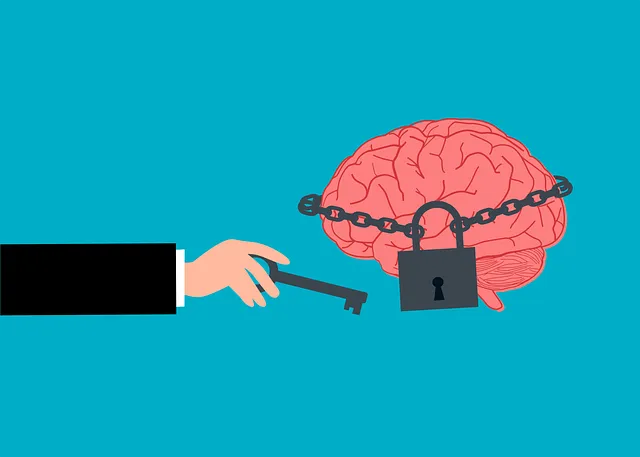Community outreach programs, like Kaiser Permanente Norcal's and the Castle Rock Initiative, are crucial in providing mental health support to underserved regions. By bridging access gaps, these initiatives empower individuals with tools for emotional well-being management. Through services like Emotional Well-being Promotion and Mindfulness Meditation, along with dedicated resources like the Kaiser Permanente mental health phone number Norcal, they reduce stigma and encourage early intervention. These strategic programs, focused on inclusivity and collaboration, have proven effective in improving mental health outcomes, offering anxiety relief, and fostering long-term emotional resilience for high-needs communities such as Castle Rock.
Community outreach programs play a pivotal role in enhancing mental healthcare accessibility, especially in underserved areas. This article explores these initiatives’ impact on mental well-being, highlighting successful models like Kaiser Permanente Norcal’s approach to providing affordable care and the Castle Rock Initiative targeting high-needs communities. We’ll delve into implementing effective strategies and measuring outcomes, offering insights into how such programs can revolutionize mental health support through accessible, tailored interventions.
- Understanding Community Outreach: Its Role and Impact in Mental Health Support
- Kaiser Permanente Norcal: A Leader in Accessible Mental Healthcare
- Castle Rock Initiative: Targeting High-Needs Communities
- Implementing Effective Program Strategies: Key Components for Success
- Measuring Outcomes: Evaluating the Effectiveness of Community Outreach Programs
Understanding Community Outreach: Its Role and Impact in Mental Health Support

Community outreach programs play a pivotal role in extending mental health support to underserved populations, particularly in areas like Norcal and Castle Rock where access to healthcare services might be limited. These initiatives aim to bridge the gap between individuals struggling with mental health issues and the professional help they need. By bringing mental health resources directly to communities, outreach programs empower people to take charge of their emotional well-being. This is especially crucial in light of the growing awareness about burnout prevention strategies for healthcare providers, as these programs can reduce the stigma associated with seeking support and encourage early intervention.
Through various techniques like Emotional Well-being Promotion and Mindfulness Meditation, community outreach initiatives foster an environment where individuals feel comfortable discussing their mental health concerns. The Kaiser Permanente mental health phone number serves as a crucial resource, providing immediate access to professionals who can offer guidance and direction. These programs not only address the immediate needs of the community but also contribute to long-term improvements in mental health outcomes, ensuring that folks in underserved areas have the tools and resources necessary to thrive.
Kaiser Permanente Norcal: A Leader in Accessible Mental Healthcare

Kaiser Permanente Norcal stands as a beacon of accessible mental healthcare, offering a range of services tailored to meet diverse community needs. Their commitment to addressing mental health challenges extends beyond traditional care models, incorporating innovative Community Outreach Program implementations that bridge gaps in service delivery. By integrating self-care practices and promoting the development of personalized routines, Kaiser Permanente Norcal empowers individuals to take charge of their mental well-being.
With a focus on inclusivity, they provide resources for all, including those who may face barriers to accessing care, such as the Castle Rock community. The organization’s dedicated team ensures that mental healthcare is not only available but also tailored to local needs and cultural contexts. Through these efforts, Kaiser Permanente Norcal exemplifies how effective Community Outreach Program implementation can revolutionize self-care routine development for better mental health outcomes.
Castle Rock Initiative: Targeting High-Needs Communities

The Castle Rock Initiative is a notable program focused on empowering high-needs communities, particularly emphasizing mental health support. This initiative by Kaiser Permanente Norcal aims to bridge the gap in access to care by providing tailored resources and services directly to underserved populations. By implementing innovative Communication Strategies, the program ensures that vulnerable individuals can connect with vital support systems. Through regular outreach and awareness campaigns, Castle Rock educates community members on various aspects of mental well-being, including Coping Skills Development.
The initiative’s success lies in its holistic approach, offering not just information but also practical tools for managing stress and anxiety, ultimately contributing to Anxiety Relief. By fostering a sense of community and empowerment, Castle Rock Initiative is revolutionizing mental health care accessibility and creating a positive impact on the lives of those who need it most.
Implementing Effective Program Strategies: Key Components for Success

Implementing effective community outreach programs requires a strategic approach to ensure success and positive impact. Key components include identifying the specific needs and goals of the target community, collaborating with local stakeholders, and tailoring programs to be inclusive and culturally sensitive. At Kaiser Permanente Norcal Castle Rock, for instance, mental health support initiatives have been successful by combining peer-to-peer mentoring with evidence-based Stress Reduction Methods and Burnout Prevention Strategies for Healthcare Providers.
These programs further integrate Emotional Well-being Promotion Techniques such as mindfulness workshops and stress management seminars. By fostering open communication channels, like the dedicated mental health phone number, organizations can create safe spaces for individuals to seek support. This holistic approach not only addresses immediate needs but also empowers community members with tools to sustain long-term emotional resilience.
Measuring Outcomes: Evaluating the Effectiveness of Community Outreach Programs

Effective community outreach programs require robust evaluation to measure their impact and identify areas for improvement. Measuring outcomes is a critical step in understanding the effectiveness of initiatives aimed at improving mental health and well-being. Organizations like Kaiser Permanente, with its mental health phone number readily available in Norcal (North California), have recognized this need. By assessing the success of outreach efforts, they can ensure resources are allocated efficiently, benefiting communities such as Castle Rock.
Evaluating community programs involves tracking key performance indicators (KPIs) related to the program’s objectives. For instance, if a program focuses on Burnout Prevention and Anxiety Relief through Self-Awareness Exercises, metrics might include participant satisfaction, increased attendance at workshops, and reduced anxiety levels measured through surveys. Regular assessments enable organizers to adapt strategies, ensuring the program aligns with community needs and delivers tangible benefits.
Community outreach programs, as exemplified by initiatives like Kaiser Permanente Norcal’s accessible mental healthcare services and Castle Rock’s focus on high-needs communities, play a pivotal role in enhancing mental health support. By implementing effective strategies and measuring outcomes, these programs can significantly improve the well-being of underserved populations. Organizations such as these not only provide crucial resources but also serve as models for others to follow, ultimately fostering a more inclusive and supportive society. For those seeking help, remember that resources like the Kaiser Permanente mental health phone number Norcal can offer vital assistance.






